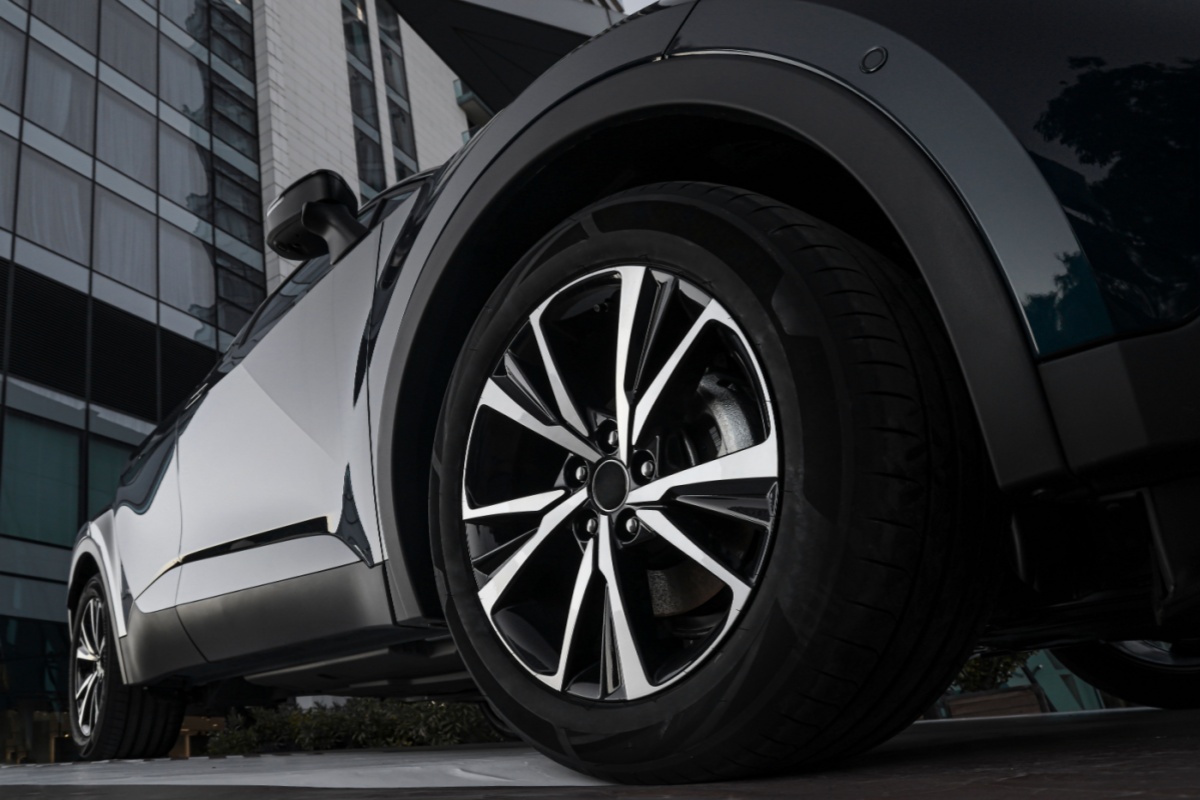Can You Get a Title Loan on a Financed Car?
Life rarely waits for the perfect financial moment. A sudden medical bill, an urgent home repair, or an unexpected loss of income can leave you scrambling for quick cash. When that happens, you might consider using your vehicle’s value to borrow money fast. But what if your car isn’t fully paid off yet? The question lingers — can you get a title loan on a financed car?
This topic is more nuanced than many borrowers realize. Title loans typically require a clear title, which often means no existing lien. Still, some lenders are open to working with financed vehicles if you meet specific conditions. Below, we’ll explore how these loans work, the importance of equity, the steps to apply, and whether the rewards outweigh the risks. We’ll also look at alternatives to ensure you have a well-rounded perspective before making a decision.
What Is a Title Loan and How Does It Work?
A title loan is a short-term, secured loan that uses your car’s title as collateral. Instead of combing through your credit history, lenders focus on the vehicle’s value and your ability to prove ownership. You hand over your title — not the car itself — and the lender places a lien on it until the loan is repaid. In many cases, these loans come with higher interest rates and shorter repayment periods than traditional personal loans. While they can provide quick relief, the cost of borrowing can add up swiftly if you’re not prepared.
Can You Get a Title Loan If Your Car Isn’t Paid Off?
One of the biggest questions is whether you can tap into your car’s value before you fully own it. In other words, can you get a title loan on a car that is financed? The simple answer is that it’s not as straightforward as when you hold a free-and-clear title. Most lenders prefer that no other liens exist. However, if you have enough equity — meaning your car’s market value significantly exceeds what you still owe — some lenders might be open to the idea.

For instance, let’s say your car is worth $20,000, and you still owe $5,000. You have $15,000 in equity. A lender may consider extending a smaller title loan because there’s ample value to cover their risk. On the other hand, if you owe nearly as much as the car’s worth, getting approved for a title loan on financed car terms becomes less likely. Ultimately, the possibility exists, but it’s not a given. Each lender has its own comfort level with financed vehicles.
How Equity Shapes Your Chances
Equity is the heart of the matter. If you’re wondering can you use a car as collateral if it’s not paid off, start by determining how much equity you have. To do that, research your car’s current market value using a reputable, up-to-date source. Then, subtract the outstanding loan balance from that figure. The remainder is your equity.
Lenders who consider financed cars want to see a comfortable cushion of equity. Without it, the arrangement becomes too risky for them. Your equity essentially assures the lender that, if you default, the vehicle’s resale value can still cover their investment and, ideally, repay the remaining portion of your original auto loan as well.
Weighing the Pros and Cons
A title loan can help if you’re facing a serious cash crunch and need money desperately. It offers a fast infusion of funds, often without an intense credit check. In many cases, you can continue driving your vehicle during the loan term, which is a relief if you rely on it for daily life.
However, there are real risks. Title loans often carry high interest rates, which can lead to expensive monthly payments. Since you’re dealing with a financed car, you’ll end up with two liens — one from the original lender and one from the title loan provider. If you fail to meet the loan requirements, repossession is a genuine threat. And because you still owe on the original loan, losing the car doesn’t necessarily eliminate all your debt.
How to Apply for a Title Loan with a Financed Car
Securing a title loan on a financed car is a bit more involved than doing so with a fully paid-off vehicle. Begin by confirming your car’s current worth and the exact amount you owe on it. Having these numbers on hand allows you to determine your equity and set realistic expectations before you approach any lenders.
Once you understand your financial position, start researching lenders. Look for those who mention they’ll consider vehicles that aren’t fully paid off. Be prepared to explain your situation clearly. Lenders may ask for details like your employment status, monthly income, and insurance coverage, as well as the vehicle’s make, model, mileage, and overall condition. Some might insist on seeing the car in person or requesting detailed photographs.
When you find a lender who’s open to working with you, listen carefully to the terms. Make sure you understand the interest rate, total loan amount, fees, and repayment timeline. The goal is to be clear on your responsibilities. If the terms feel vague or overly complicated, ask for clarification. A reputable lender will take the time to answer your questions without rushing you. Before signing any documents, ensure you’re confident you can handle both the original and title loans simultaneously.
Common Hurdles and Considerations
- Not all states allow title loans, and those that do often have varying restrictions on maximum interest rates or loan amounts.
- The lender may hesitate to approve the loan if your car is older or has high mileage.
- While equity in the vehicle is important, lenders also consider the car’s perceived resale value and reliability.
- Some lenders require the original lienholder to agree to remain in a secondary position if the car is repossessed, adding another layer of complexity.
Alternatives to Title Loans for Financed Cars
Before you commit to a title loan on financed car terms, it’s worth exploring other options to see what fits your situation best. If your credit is decent, refinancing your existing auto loan might lower your payments or free up some cash. A personal loan from a bank or credit union could provide a more predictable and potentially cheaper option. In some cases, you might rely on a credit card or a line of credit to bridge a temporary gap.
Another avenue is to reassess your vehicle situation entirely. If you’re struggling to keep up with costs, it might be worth trading your current ride for a more affordable one. This approach can free up funds and reduce the need for risky financial maneuvers. For suggestions on how to make a change, you might explore strategies like getting a car with no down payment or negotiating lower rates with your current lender.
3 Tips for Finding the Right Lender
While you might feel pressured to act fast, slowing down to find a trustworthy partner can make a huge difference. First, consider comparing at least a few reputable title loan companies. Look beyond the initial pitch and pay attention to the fine print, interest rates, and customer feedback from recent years.
Second, check that the lender follows state regulations and maintains the appropriate licenses. They should be transparent about all fees and charges. Finally, aim for a lender who’s willing to communicate openly. If they’re patient in answering your questions and flexible enough to consider special arrangements, that’s a good sign. You want someone who recognizes that every borrower’s situation is unique.
Final Thoughts: Is a Title Loan on a Financed Car Right for You?
When you ask, “can you get a title loan on a financed car?” you’re really asking if it’s wise to add another layer of risk to your already financed vehicle. Sometimes, the answer is yes — if you have ample equity, understand the terms, and can manage the payments without jeopardizing your transportation. But this option isn’t for everyone. The costs can be high, and the stakes are personal. Your car is likely a big part of your daily life, and losing it could have long-lasting consequences.
Before you move forward, take a moment to assess your financial situation. Ask yourself whether there are simpler, less stressful options. If you do pursue a title loan, enter the agreement with clear eyes and a solid repayment plan. In the end, being well-informed and cautious is your best defense against unnecessary debt and financial strain.
FAQ
Can I Get a Title Loan on a Leased Car?
It’s unlikely. With a leased car, you don’t hold the title. Because a title loan requires full or partial equity in a car you own, a lease typically doesn’t qualify. However, there may be some lenders who specialize in this type of financing.
How Much Can I Borrow with a Title Loan on a Financed Car?
The amount depends on your equity. If your car’s value far exceeds what you owe, a lender may offer a loan reflecting that difference. If not, the offered amount — if any — will be smaller.
What Happens if I Default on a Title Loan with a Financed Car?
Defaulting can lead to repossession. The lender could sell the car to recover their money, and you might still owe the original lender if the sale price doesn’t cover everything. This could leave you without transportation and with outstanding debt.
Will Applying for a Title Loan Affect My Credit Score?
You should always assume that applying for a loan will affect your credit score at least a little. While some title loan lenders don’t pull hard credit inquiries, simply applying might not harm your score. However, if you default or can’t meet payment obligations, the downstream financial consequences could eventually impact your creditworthiness.
Can a Financed Car Be Used as Collateral?
In some cases, yes — as long as you have sufficient equity. If you're wondering whether you can get a title loan while still owing money on your car, the real deciding factor is whether the lender sees enough value in the vehicle to justify the risk.
Can I Borrow Money on a Financed Car?
Potentially. If the lender allows it and your equity is strong, you can borrow against the car’s value. Just remember that this complicates your finances and can turn into a serious liability if not managed carefully.
What Are the Requirements for a Title Loan in California?
In California, lenders must be licensed and comply with state regulations. Generally, you’ll need a valid ID, proof of income, insurance, and sufficient equity. The rules may also dictate minimum loan amounts and other conditions, so it’s wise to verify the current regulations before applying.
Can I Take a Loan Out on My Car if I Still Owe?
Maybe. Factors may include you finding a lender willing to accept a financed car and you meeting their criteria for equity, income, and vehicle value. But consider all angles before committing. The added stress of two loans against the same car can be significant.





